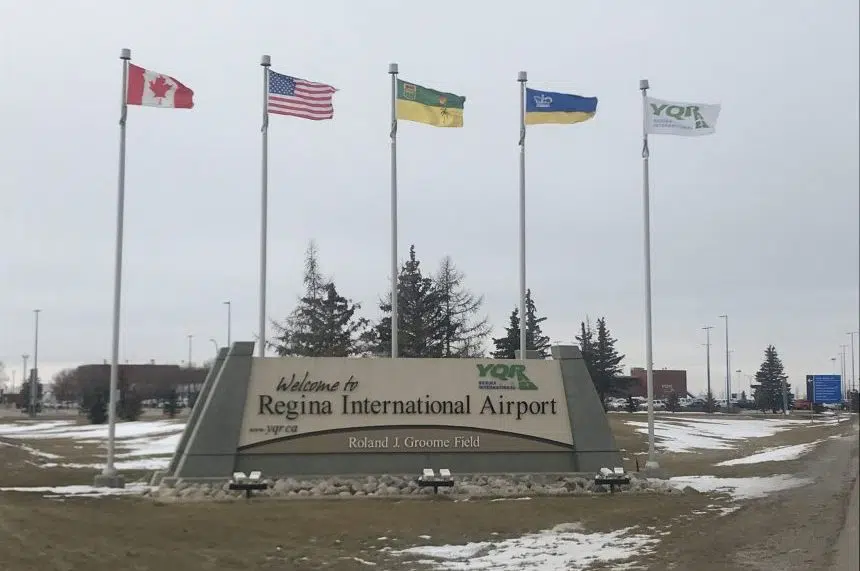While provincial restrictions around COVID-19 are set to be removed in Saskatchewan, air travel will still have some requirements.
Justin Reves, manager of customer experience for the Regina Airport, said an airport can be a tricky situation.
“An airport can be a little bit confusing because there are a lot of different organizations at an airport. There’s also a difference between what is federally regulated and what is provincially regulated. Air travel itself is federally regulated through Transport Canada so the rules don’t come from the province,” Reves told the Greg Morgan Morning Show on Thursday.
“You will still need your proof of vaccination in order to fly as well as continue to wear a mask at certain areas doing certain things such as being on an airplane, boarding an airplane (and) when you go through your pre-board screening.”
The province is set to get rid of its vaccination requirements as of Monday while the mask mandate is set to expire with other public health measures at the end of the month.
Meanwhile, Ottawa does not currently have a timeline in place for when its mandates may come to an end. That also means testing requirements will still be in place for travellers coming into the Regina airport.
“I don’t know the exact percentage (but) my estimate is 10 to maybe 20 per cent of the travellers are getting selected for a mandatory arrival test,” Reves said.
“If you’re coming from any country other than the U.S., if you do get selected for a mandatory randomized test, you get a little take-home kit, you go home and do it basically over Zoom with a company called LifeLabs, you FedEx it away and then you wait for the results at home.
“Once you get the results back, you are clear to return to the world as normal but you do need to quarantine until you get the results of that if you are selected.”
While the tests travellers get when they arrive in Canada are free, travellers are still required to take a test in the country they are visiting and provide a negative test within 72 hours of departure.
“That’s been a challenge for travellers. There’s also always the chance that you do test positive when you have travelled outside of the country but now it’s 10 days. You can’t fly for 10 days, but you can fly home on the 11th day,” Reves said.
While people are still travelling, Reves said January’s travel numbers for the airport show they were around 33 per cent of normal traveller capacity.







